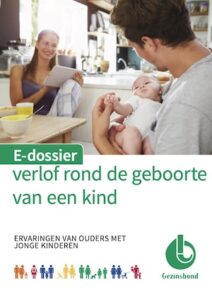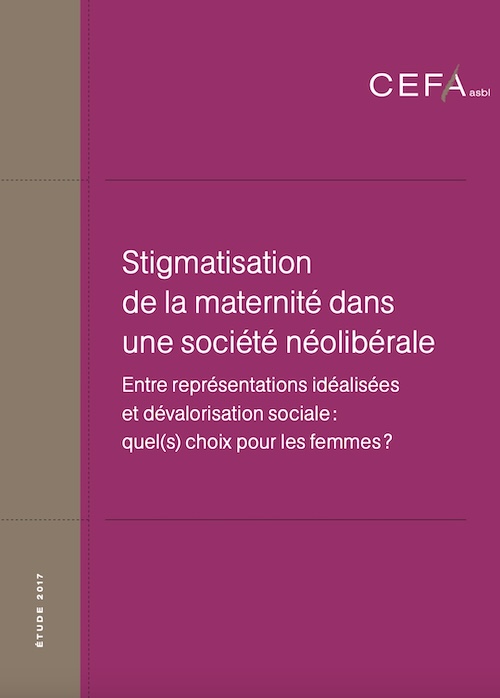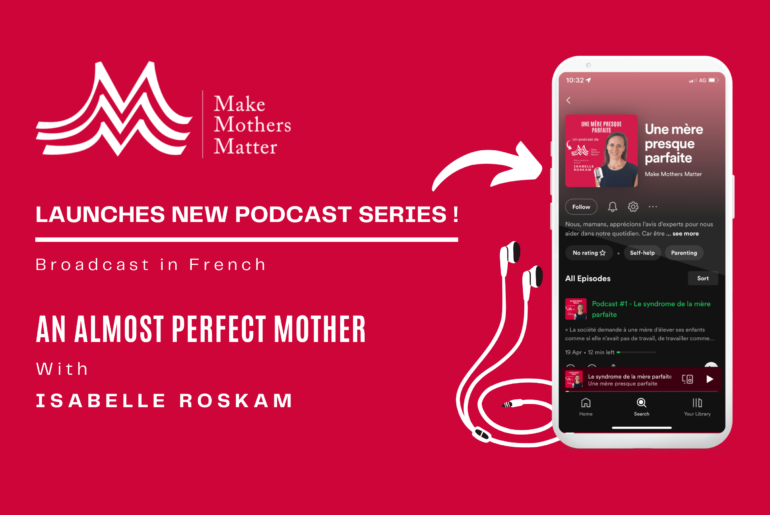MMM advocacy in Belgium – Mothers and Health
A longer maternity leave for better maternal and child health
 In 2016, MMM Belgium took part in the presentation of a study carried out by Gezinsbond (NL) showing that people in Flanders think that the length of maternity leave is not long enough, especially when a mother has to take time off work before giving birth for medical reasons. Doctors also point to scientific studies on the benefits of longer maternity leave for breastfeeding and for the health and well-being of both baby and mother.
In 2016, MMM Belgium took part in the presentation of a study carried out by Gezinsbond (NL) showing that people in Flanders think that the length of maternity leave is not long enough, especially when a mother has to take time off work before giving birth for medical reasons. Doctors also point to scientific studies on the benefits of longer maternity leave for breastfeeding and for the health and well-being of both baby and mother.
MMM Belgium has therefore been calling for maternity leave to be extended to 18 weeks (as advocated at European level in 2015), and above all for the weeks ‘lost’ by mothers before giving birth to be considered as sick leave and not to encroach on the 14 weeks that can be taken after giving birth. A longer maternity leave will ensure better maternal and child health.
In particular, MMM Belgium supported the campaign launched in 2017 by Valérie Loreaux, a young mother. A petition was sent to Health Minister Maggy de Block and Employment Minister Kris Peeters asking them to guarantee the length of postnatal leave: after a difficult pregnancy, baby and mum must be able to enjoy these first 14 weeks together. MMM Belgium, by providing all the Dutch translations, has helped to promote this campaign in both Dutch- and French-speaking countries.
For a respectful birth
MMM Belgium has joined The Platform for a Respectful Birth, a collective of citizens, users, parents, health professionals, associations, feminists and representatives of civil society, that reaffirms women’s right to choose the circumstances of their childbirth in the interests of newborn babies, mothers and their partners.
The Platform has identified 4 priority actions to enable a respected birth in Belgium, through and independently of the various places of birth and the different health professionals who accompany the birth:
- Systematic and comprehensive information on the physiological progress of childbirth, the professionals involved and the places to give birth
- Transparency about in-hospital and out-of-hospital practices, in particular intervention rates
- Prevention of unjustified medical interventions and/or interventions without the patient’s informed consent
- Strengthening the skills and complementarity of the various birth professionals
Stigmatisation of motherhood
 In 2017, MMM in Belgium joined the Platform to Promote Women’s Health (PPSF) to contribute to the project Stigmatisation of motherhood in a neoliberal society. Between idealised representations and social devaluation, what choice(s) do women have? The Plateforme, which brings together associations in Brussels and Wallonia, has been analysing the relationship between women’s health and the workload associated with ‘domestic care’ for several years.
In 2017, MMM in Belgium joined the Platform to Promote Women’s Health (PPSF) to contribute to the project Stigmatisation of motherhood in a neoliberal society. Between idealised representations and social devaluation, what choice(s) do women have? The Plateforme, which brings together associations in Brussels and Wallonia, has been analysing the relationship between women’s health and the workload associated with ‘domestic care’ for several years.
In 2016, a study entitled ‘Care, gender and women’s health’ had revealed that motherhood was a break in women’s lives, as with the arrival of a child, this work increases considerably.
The analysis was taken a step further by reflecting on the representations and stereotypes associated with motherhood, and by taking stock of the situation on this subject. 23 feminists were interviewed for this purpose, including 6 by MMM.
Key findings included:
- The persistence of stereotypes relating to motherhood (and, more broadly, fatherhood and parenthood)
- The stigma attached to being both a mother and an active woman on the labour market
- The difficulty of proposing, developing and implementing solutions that respect the specific needs of women, even within feminist proposals
MMM took part in the presentation of the study Stigmatisation of motherhood in a neoliberal society, which took place in June 2018.
![]() Read the the whole study Stigmatisation de la maternité dans une société néolibérale (in French)
Read the the whole study Stigmatisation de la maternité dans une société néolibérale (in French)

